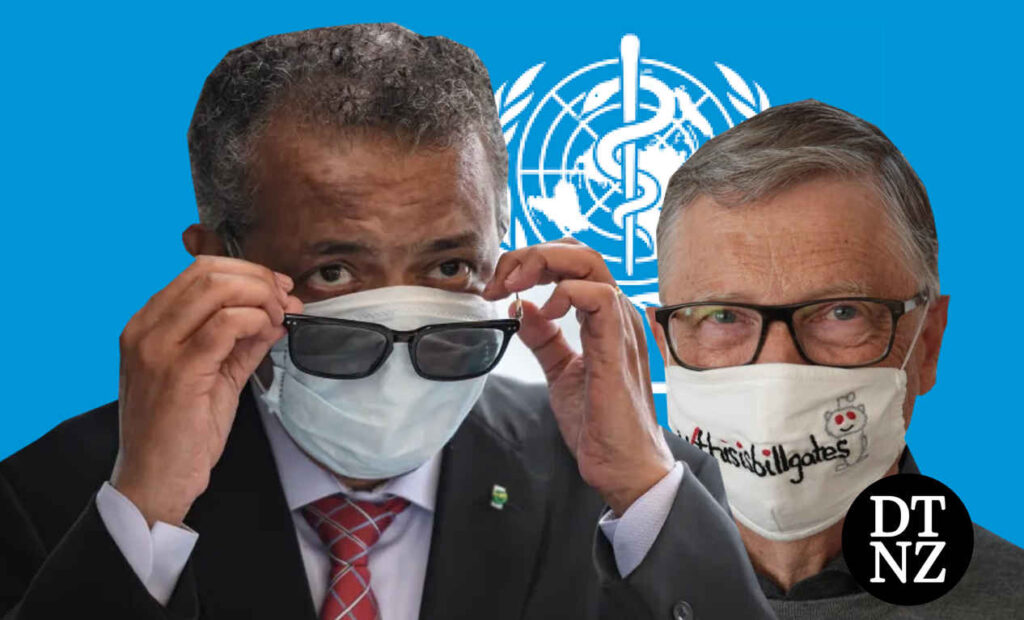A new pandemic treaty is in the works.
Countries are negotiating its terms, along with amendments to international health regulations. If ready in time, the World Health Assembly will approve them in May. The deal may give the WHO power to declare global health emergencies. Countries will promise to follow WHO directives. Lockdowns, vaccine mandates, travel restrictions, and more will be in the works. Critics say that the agreements will override national sovereignty because their provisions will be binding. But international law is the art of the Big Pretend.
You drive down Main Street. Cars are parked everywhere. The signs say “No Parking” but they also say, “The City does not enforce parking restrictions.” In effect there’s no rule against parking. Laws are commands imposed with the force of the state. Rules without sanctions are mere suggestions. Some people may honor the request, but others won’t. Those who disagree with the rule can safely ignore it. In domestic law, “enforceable” and “binding” are synonyms.
But not in international law, where promises are called “binding” even if they are unenforceable. In the international sphere, countries are the highest authority. Nothing stands above them with the power to enforce their promises. No such courts exist. The International Court of Justice depends on the consent of the countries involved. No international police enforce its orders. The UN is a sprawling bureaucracy, but in the end, it is merely a place for countries to gather. The WHO is a branch of the UN whose mandate countries negotiate amongst themselves.
In the proposed pandemic treaty, parties are to settle disputes through negotiation. They may agree to be subject to the International Court of Justice or to arbitration. But they cannot be required to.
Yet international law jurists insist that unenforceable treaty promises can be binding. “The binding character of a norm does not depend on whether there is any court or tribunal with jurisdiction to apply it,” Daniel Bodansky, a professor of international law at Arizona State University, wrote in a 2016 analysis of the Paris climate agreement. “Enforcement is not a necessary condition for an instrument or norm to be legally binding.” Without this Big Pretend, international law would collapse like a house of cards on a windy beach.
All countries are sovereign. They are free to retaliate against each other for perceived wrongs, including breaches of treaty promises. They can seek to have other countries censured or expelled from the international regime. They can impose trade sanctions. They can expel ambassadors. But retaliation is not “enforcement.” Moreover, international relations are a delicate business. Aggrieved countries are more likely to express their disappointment in carefully crafted diplomatic language than to burn bridges.
The threat from WHO proposals come not from outside but from within. We live in a managerial age, run by a technocratic elite. Over time, they have acquired for themselves the discretion to direct society for the common good, as they declare it to be.
As journalist David Samuels puts it, “Americans now find themselves living in an oligarchy administered day-to-day by institutional bureaucracies that move in lock-step with each other, enforcing a set of ideologically-driven top-down imperatives that seemingly change from week-to-week and cover nearly every subject under the sun.” These bureaucracies regulate, license, expropriate, subsidize, track, censor, prescribe, plan, incentivize, and inspect. Pandemics and public health are the most recent justifications for yet more control.
Domestic governments, not international bodies, will impose WHO recommendations on their citizens. They will pass laws and policies that incorporate those directives. Even an exasperated WHO Director-General Tedros Adhanom Ghebreyesus said so in a briefing this week. “There are those who claim that the pandemic agreement and [amended regulations] will seed sovereignty…and give the WHO Secretariat the power to impose lockdowns or vaccine mandates on countries…These claims are completely false…the agreement is negotiated by countries for countries and will be implemented in countries in accordance with your own national laws.”
Ghebreyesus is correct. Local and national authorities will not give up their powers. To what extent international commitments will be “binding” on a country depends not on international law but on that country’s own domestic laws and courts. Article VI of the US Constitution, for example, provides that the Constitution, federal laws, and treaties together “shall be the supreme Law of the Land.” That does not mean that treaties supersede the Constitution or federal laws. Domestic legislation and policy will be required for the proposed pandemic treaty and WHO directives to be enforced on American soil. Such legislation is an exercise of sovereignty, not a repudiation of it.
The proposals are not benign. Domestic authorities seek cover for their own autocratic measures. Their promises will be called “binding” even though they are not. Local officials will justify restrictions by citing international obligations. Binding WHO recommendations leave them no choice, they will say. The WHO will coordinate their imperatives as the face of global public health.
The WHO is not taking over. Instead, it will be the handmaiden for a coordinated global biomedical state. Managers hate straight lines. Diffuse, discretionary powers avoid accountability and the rule of law. The global health regime will be a tangled web. It is meant to be.

Still not wanted
You know what else is “binding”?
Rope and a lamppost.
The establishment criminals who think they’re going to hide behind, “we’re just doing what the WHO told us” are only going to be able to push people so far before they learn this lesson.
Everyone has a plan until they get punched in the face.
I do not consent to anything the WHO proposes, enforces, suggests. Fool me once shame on WHO (UN, Government, Police, medical staff, Local Government etc) fool me twice shame on me.